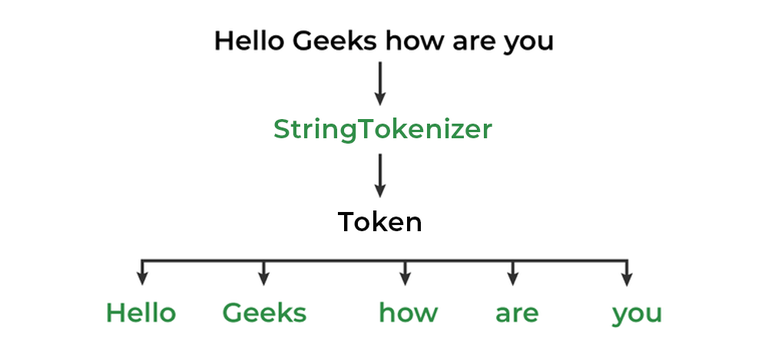Why Are Strings Immutable in Java? Secret Reasons and Benefits Discussed
Why Are Strings Immutable in Java? Secret Reasons and Benefits Discussed
Blog Article
Immutable Strings: A Trick Element in Ensuring Information Consistency and Integrity
In the realm of information monitoring, the importance of immutable strings can not be overemphasized. These constant sequences of personalities play an essential duty in promoting the stability and precision of details within systems. By maintaining a state of immutability, data consistency is ensured, promoting a structure of integrity upon which critical procedures depend. The principle of immutable strings goes beyond plain technicality; it is a linchpin in the complicated internet of information administration. As we check out the advantages, implementation techniques, and practical applications of immutable strings, a more clear photo arises of their crucial nature in guarding the digital landscape.
The Idea of Immutable Strings
Immutable strings, an essential principle in shows, describe strings that can not be modified once they are created. Basically, as soon as a string worth is appointed, any kind of procedure that shows up to modify the string really creates a brand-new string. This immutability guarantees data uniformity and dependability in applications, as it stops unexpected modifications to the original data.
Advantages in Data Uniformity

Data uniformity is critical in different aspects of software development, consisting of data source monitoring, multi-threaded atmospheres, and dispersed systems (Why are strings immutable in Java?). Unalterable strings add substantially to accomplishing this uniformity by stopping data corruption as a result of concurrent access. In circumstances where numerous processes or strings communicate with the exact same information simultaneously, unalterable strings serve as a guard against race problems and synchronization problems
In addition, the immutability of strings streamlines debugging and testing processes. With immutable strings, designers can trust that as soon as a string is established, it will certainly continue to be unchanged, making it less complicated to trace the resource of errors and making sure that test instances generate consistent outcomes. This integrity in information taking care of ultimately causes much more steady and robust applications.

Carrying Out Unalterable Strings
Ensuring the immutability of strings needs a thoughtful approach to their implementation in software application advancement. One essential strategy is to create string courses in a manner that avoids modifications as soon as a string things is produced. By making strings unalterable, developers can improve information consistency and integrity in their applications.
To implement unalterable strings successfully, developers need to favor creating new string things instead of modifying existing ones. This technique ensures that as soon as a string is designated a value, it can not be transformed. Additionally, any kind of operation that web link appears to customize the string should produce a new string with the desired modifications as opposed to modifying the initial.
Furthermore, using unalterable strings can simplify concurrency monitoring in multi-threaded environments. Given that unalterable strings can not be transformed after development, they can be securely shared amongst numerous strings without the threat of information corruption.
Duty in Integrity Guarantee
In software application growth, the application of unalterable strings plays a vital duty in ensuring the integrity of information procedures. Unalterable strings, once developed, can not be customized, making sure that the information they stand for remains regular throughout the application's execution. This immutability property supplies a level of assurance that the data being processed will certainly not be inadvertently changed, resulting in unanticipated end results or mistakes in the system.
By including unalterable strings into software application style, designers can improve the reliability of their applications by minimizing the risks connected with mutable data - Why are strings immutable in Java?. Unalterable strings help in preventing data corruption or unplanned adjustments, which can be specifically essential when taking care of sensitive information or when data integrity is paramount
In addition, using unalterable strings simplifies concurrent handling, as several threads can securely accessibility and share string data without the danger of one thread changing the content while one more reads it. This aspect contributes dramatically to the general dependability of the software application system, ensuring predictable and regular actions in data managing procedures.
Applications and System Integration
The smooth combination of immutable strings right into various applications and systems is crucial for ensuring robust information consistency and integrity across varied technological environments - Why are strings immutable in Java?. Unalterable strings play a critical duty in improving the integrity of information exchanges and communications within facility software more tips here application communities. By including unalterable strings right into applications, developers can minimize the risks related to data tampering, unapproved adjustments, and unintended alterations, consequently fortifying the overall protection position of the system
In the context of system assimilation, unalterable strings offer as a fundamental component for establishing safe interaction channels and assisting in smooth data transfers in between various parts. Their immutable nature guarantees that data transmitted between systems continues to be unchanged and verifiable, minimizing the chance of incongruities or mistakes that can compromise the integrity of the whole system. Furthermore, unalterable strings can improve interoperability in between disparate systems by supplying a standard layout for information depiction, allowing a lot more reliable information processing and exchange protocols across interconnected platforms. By adopting immutable strings in applications and system integration processes, organizations can fortify their information framework and promote the integrity and uniformity of their details properties.
Verdict
In verdict, immutable strings play a vital function in preserving data uniformity and reliability in numerous applications and system combinations. By making sure that strings can not be transformed as soon as produced, the integrity of information is maintained, reducing the threat of inconsistencies and errors. Applying immutable strings can considerably improve the reliability of systems, inevitably causing more accurate and reputable data handling.

Report this page